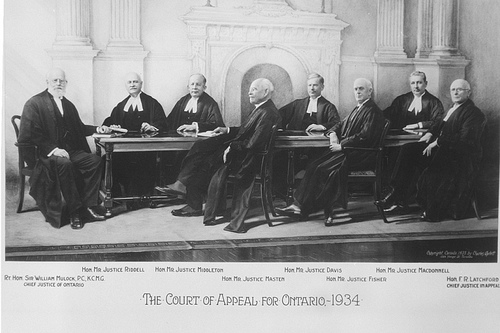Tahir Ashraf in Court of Appeal on UK / EU Law State Immunity Case
Tahir Ashraf barrister successfully represented the intervener 4A Law, in a ground-breaking Court of Appeal case concerning state immunity and public international law
Court of Appeal Judgments
42 years of state immunity practice in the UK are changed in Court of Appeal judgments in Benkharbouche & Another v Sudan and Libya. The above case has significant ramifications for public international law. The State Immunity Act 1973 provisions have been set aside to give effect to EU law, and granting a declaration of incompatibility.

The Court of Appeal for Ontario 1934—Law Society of Upper Canada Ar… (Flickr.com) Tahir Ashraf in Court of Appeal on UK / EU Law State Immunity Case
The intervention raised novel submissions which were against to the position of the UK government, in particular, the Secretary of State for the Foreign and Commonwealth Office. It was also contrary to the position of the State of Libya, and The Sudan.
Court of Appeal judges Lord Justice Elias and the Master of the Rolls granted 4A Law permission to intervene were recognised for assisting the Court of Appeal in arriving at its decision.
The arguments advanced on behalf of 4A Law at the Court of Appeal were that Sections 4(2)(b) and 16 1 (a) of the SIA could not be read in a manner so as to appear compliant with EU law. The SIA accordingly was incompatible with directly enforceable EU law. As a result, a claim could be made in the UK by an employee carrying out non-sovereign functions in circumstances where there is no rule of customary international law preventing such claims from being brought against a state.
Under British legislation, namely, the European Communities Act 1972, sections 4 (2) (b) and 16 1 (a) of the State Immunity Act 1974 should be set aside to give effect to directly enforceable EU rights, taking into account, in particular, the direct effect of Article 47 of the EU Charter and Article 6 of the ECHR.
The Court of Appeal judges Lord Dyson, Master of the Rolls, Lady Justice Arden, and Lord Justice Lloyd Jones, held that the court is required to dis-apply the SIA to those parts of the claims which fall within the scope of EU law and granted a declaration of incompatibility.